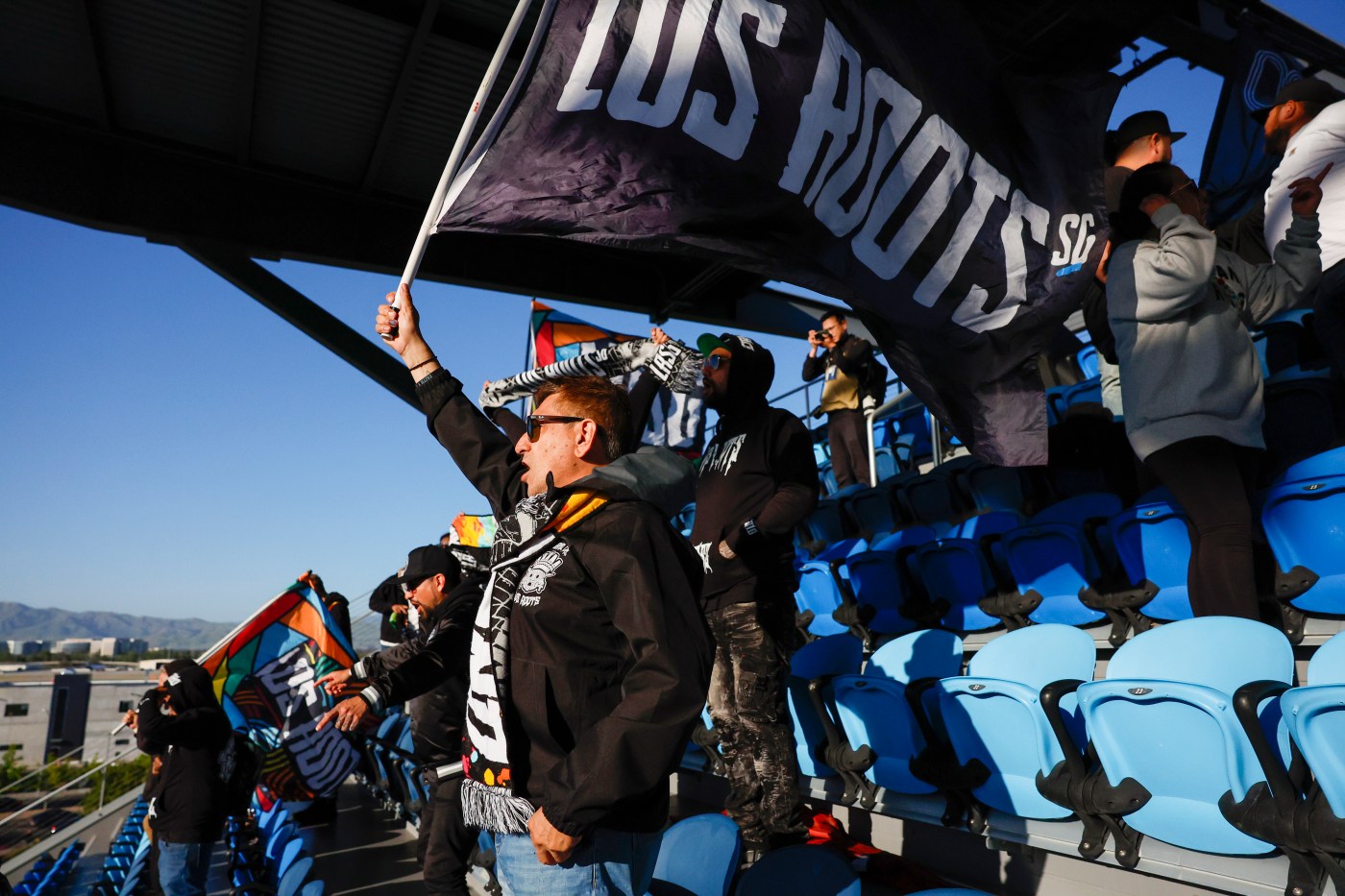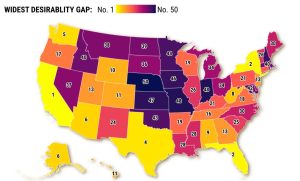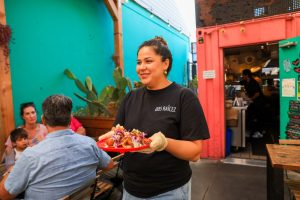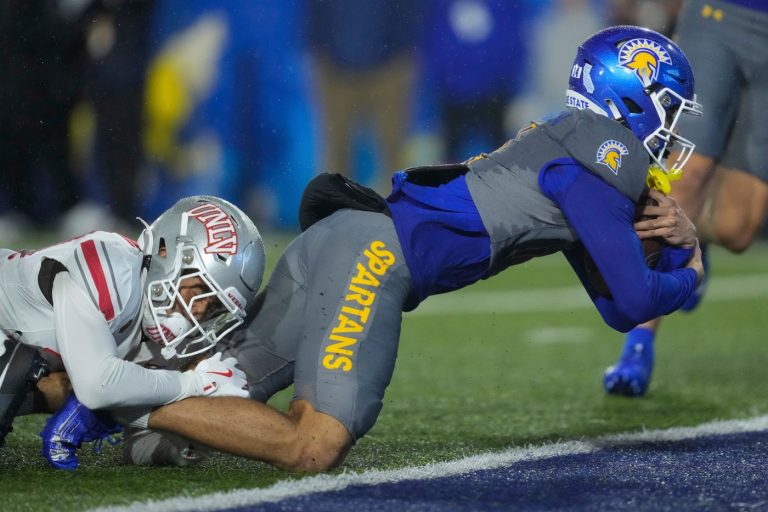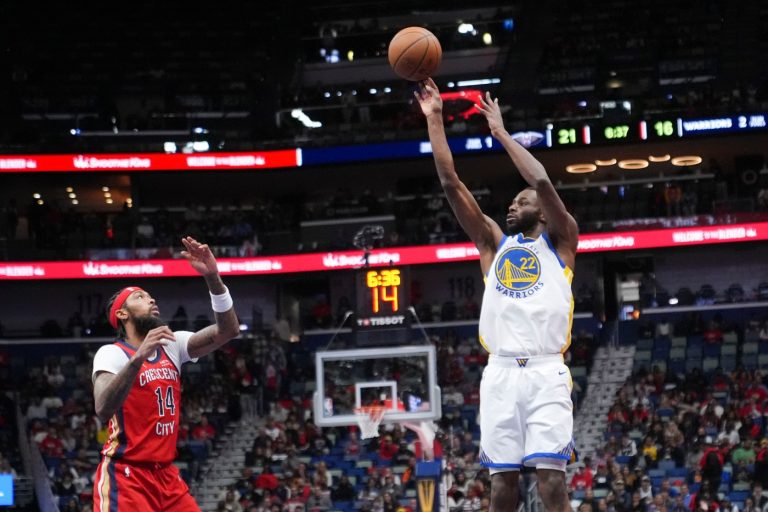OAKLAND — Although it may no longer be draped in green-and-gold A’s banners, the concrete Oakland Coliseum stadium will still host live sports in 2025.
Related Articles
Oakland police union calls for Mayor Sheng Thao’s resignation
Oakland A’s agree to sell Coliseum share to Black-led development group
The best and worst trades in Oakland A’s history — including a lot of recent misses
Oakland inks deal to sell Coliseum to Black-led private development group
A popular new night market elevates baseball food in West Oakland
Professional soccer franchise Oakland Roots Sports Club has inked a $3 million lease with the city and Alameda County to play 17 home games next season at the Coliseum, team officials said.
The deal, promised for months but made official Monday, returns the popular soccer brand to Oakland after two seasons at Cal State East Bay in Hayward, which the Roots abruptly declared their home in 2023 due to an issue with the field turf at Oakland’s Laney College.
It buys the Roots and its companion women’s team, the Soul, more time to build a temporary, modular stadium in the Coliseum complex’s triangular Malibu Lot, which until now had been used mainly as overflow parking space.
The soccer teams are working to secure a lease for the new 10,000-seat stadium beginning in 2026 for a period of 10 years before they leave again for what’s supposed to be a larger, permanent stadium elsewhere in Oakland. The Soul will continue to play at Merritt College while the temporary stadium is built.
Roots officials were expected to formally announce the news Monday morning at a news conference in the Treehouse, a recreation area in the Coliseum’s ballpark.
Oakland Roots’ Niall Logue (3) and Oakland Roots’ Neveal Hackshaw (15) jump for the ball against San Jose Earthquakes’ Preston Judd (19) in the second half at PayPal Park in San Jose, Calif., on Tuesday, May 7, 2024. (Shae Hammond/Bay Area News Group)
Oaklanders have quickly taken to the city’s professional soccer teams, despite neither playing in the country’s most prominent men’s and women’s leagues.
The Roots’ black-colored merchandise can be seen everywhere around town. As the French men’s national team fell to Spain in the Olympic Gold Medal match last week, a fan draped in more colorful Roots gear was seen on the TV cameras all the way in Paris.
“Long-term, I think our potential is unlimited,” the Roots’ president, Lindsay Barenz, said in an interview ahead of Monday’s announcement. “We see how much the sport is loved around the world.”
The aging concrete stadium had become a quieter place in recent years as frustrated A’s fans decided the departing baseball team was no longer worth their dollars — though a series of “reverse boycotts” last year saw single-day surges in attendance.
It may be unrealistic for the Roots, which averaged 4,000 attendees at their games in Hayward, to fill the gargantuan 60,000-seat stadium. But team officials said they were confident thousands more will begin attending games upon their return to Oakland.
The entire 155-acre complex, including the stadium, arena and space in-between, will soon come under the full ownership of the African American Sports and Entertainment Group, or AASEG, local development firm looking to redevelop the site into a new nightlife hub. In the past month, AASEG agreed to terms with both the city and the A’s to acquire the entire property for roughly a combined $230 million.
So far, the development group has lost out to San Francisco in their courtship of a forthcoming WNBA franchise, while a new National Women’s Soccer League team, Bay FC, was awarded to San Jose instead of Oakland.
Ray Bobbitt, the African American Sports and Entertainment Group’s founder, said the Roots and Soul will anchor the property’s sports offerings for the time-being as the group finalizes redevelopment plans over the next several years.
When construction begins in earnest, he needed, the Malibu Lot likely will need to be cleared to provide the public enough entry and exit routes to the larger complex. Barenz, for her part, said the triangular lot simply won’t be large enough to fit the team’s long-term ambitions.
“The entire Coliseum complex is really an incredibly good entertainment destination, and it has kind of an in-and-out capacity,” Bobbitt said, in reference to the property being adjacent to Interstate 880 and directly connected to a BART station.
Oakland Roots Soccer Club President Lindsay Barenz at their training facility, which was the same for the Oakland Raiders in Alameda, Calif., on Wednesday, Dec. 14, 2022. (Ray Chavez/Bay Area News Group)
The Roots formed in 2019 and two years later joined the USL Championship — a kind of second division in U.S. pro soccer that has become less of a minor league than a rival to the MLS, which still has more teams and attracts top international talent.
U.S. women’s soccer, meanwhile, is still in relatively early stages and could one day merge its professional leagues — allowing the Soul, which began play last year, to increase its footprint in the sport.
“There’s truly an unlimited amount of space for the sport to grow,” Barenz said.
